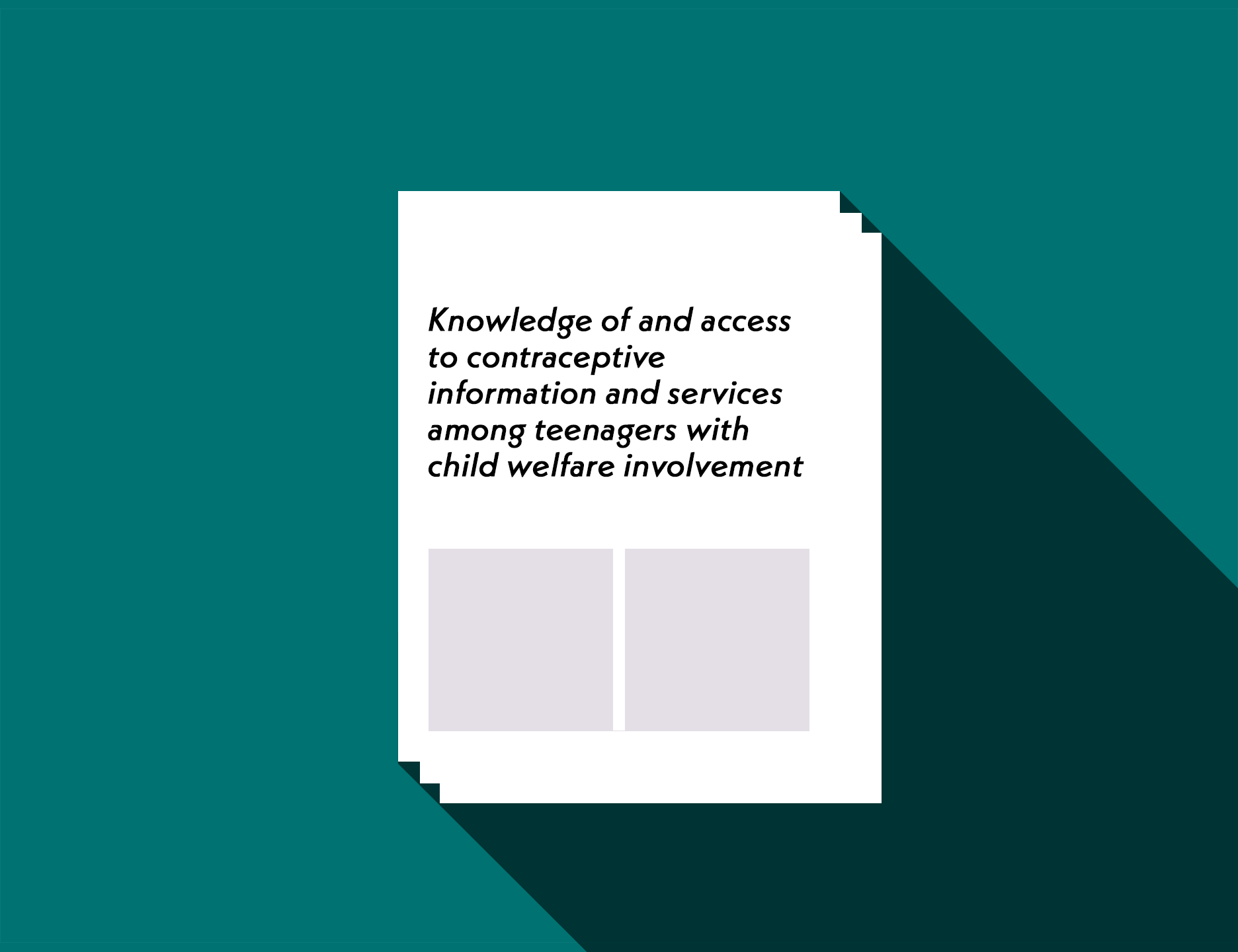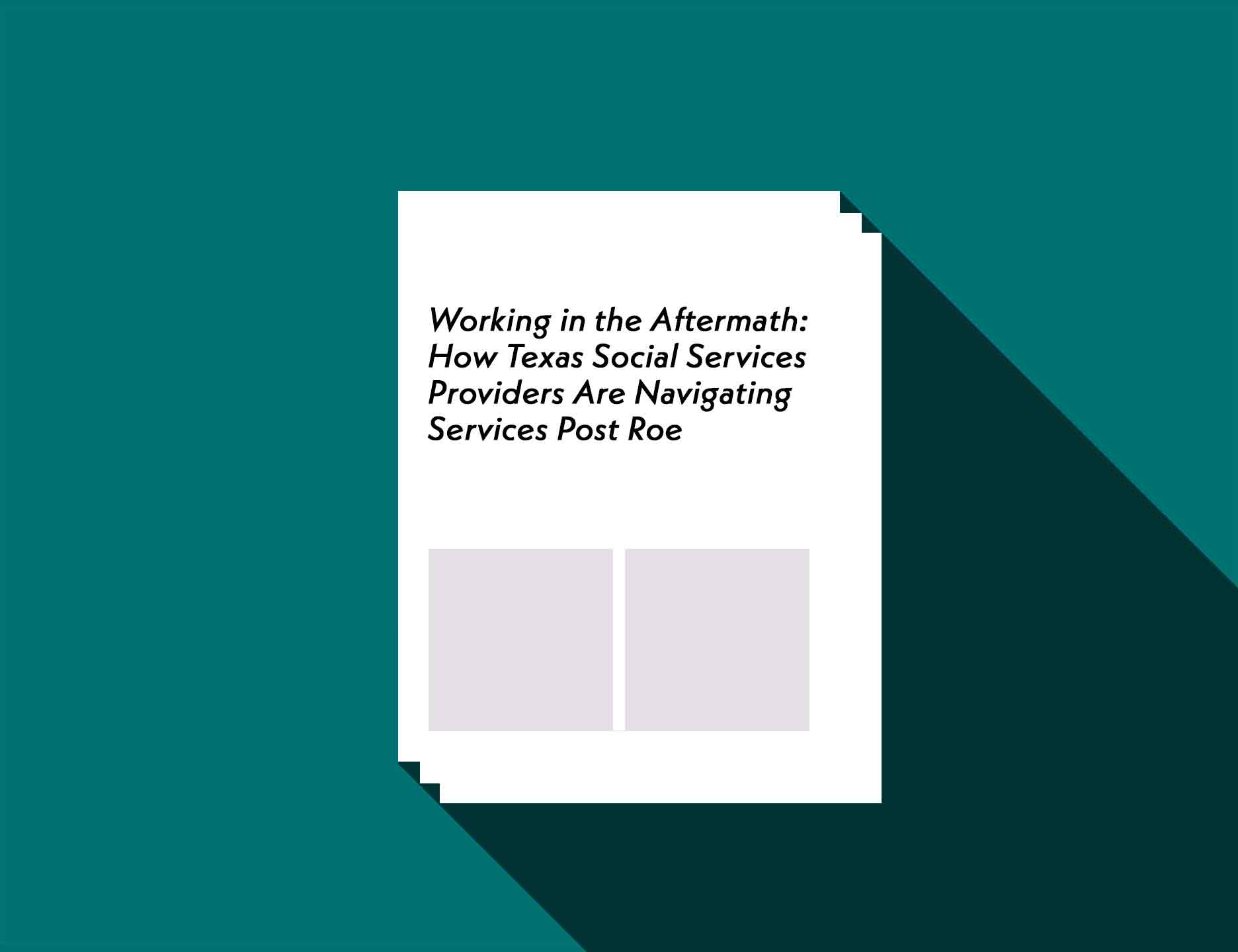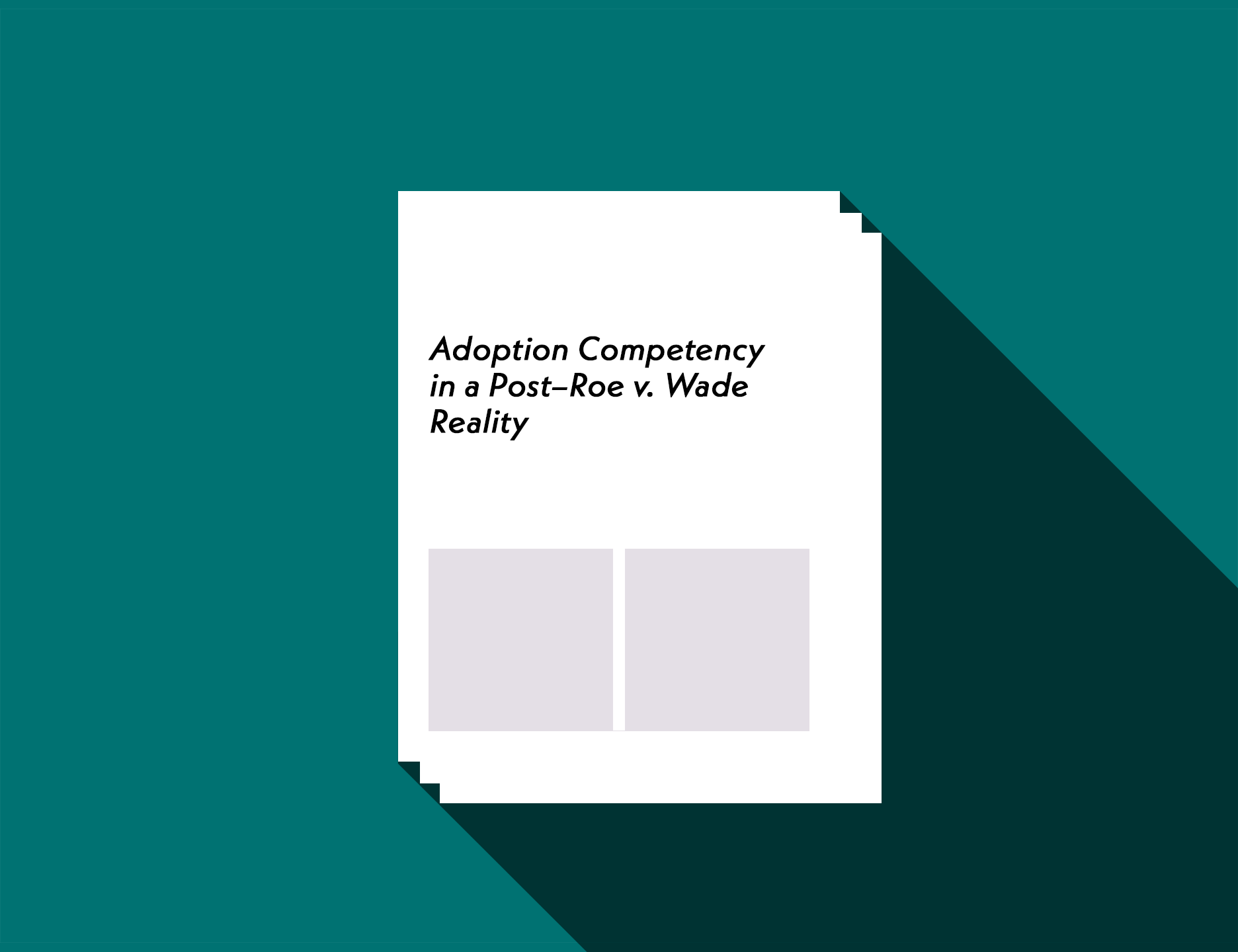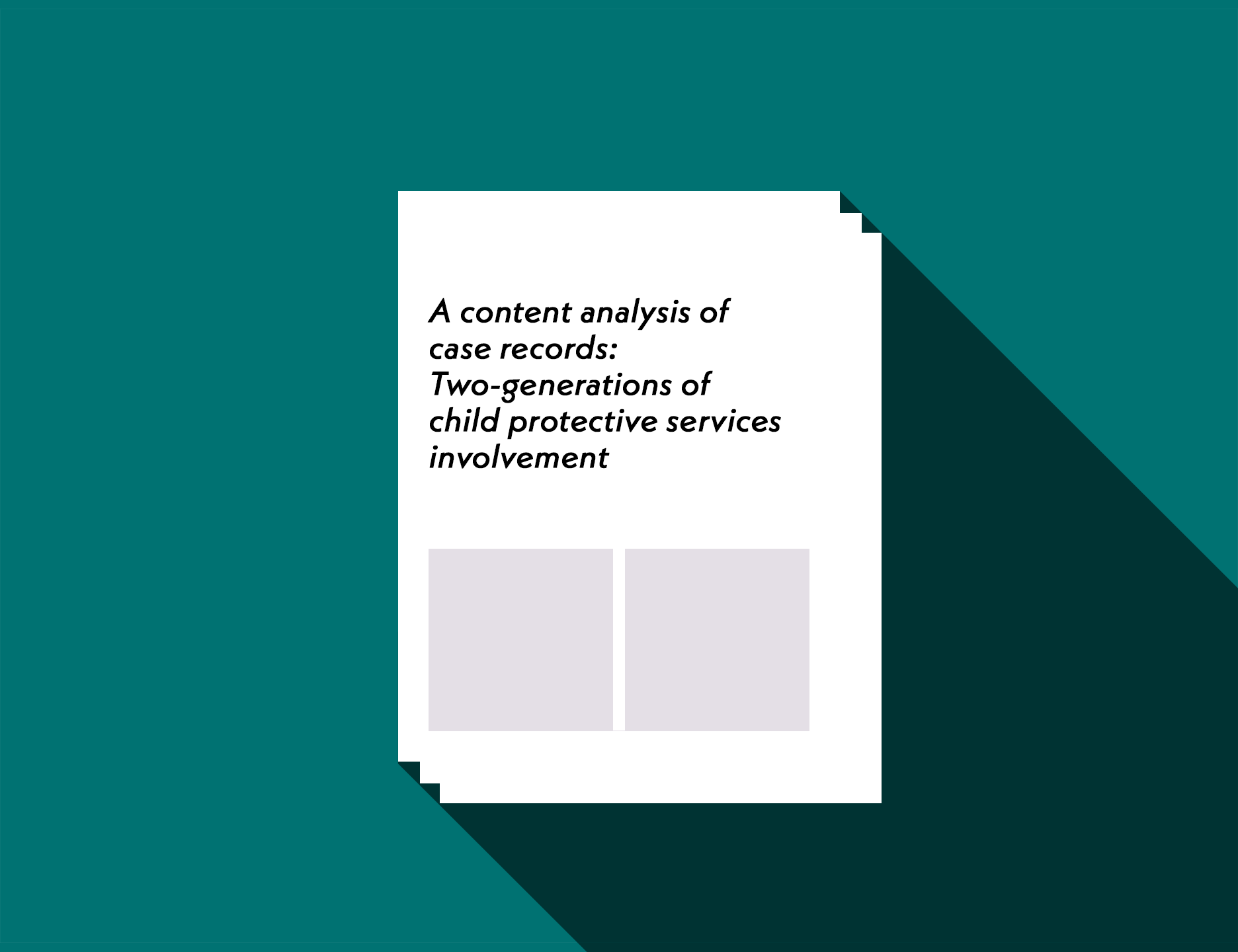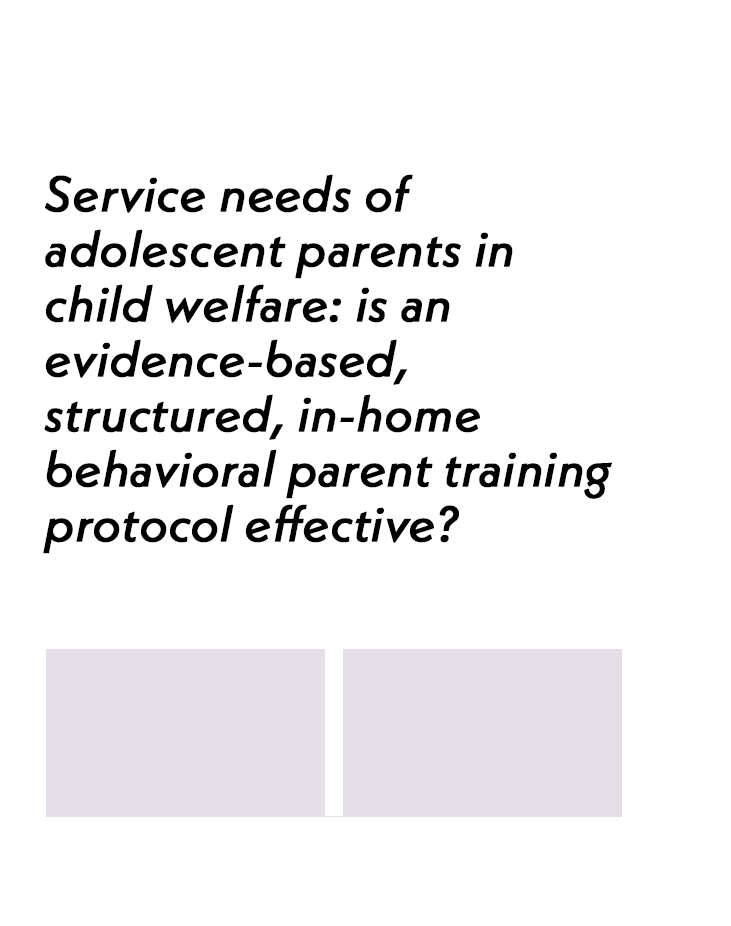
Service needs of adolescent parents in child welfare: is an evidence-based, structured, in-home behavioral parent training protocol effective?
Child Abuse & Neglect, 2016
Grace S. Hubel, Whitney L. Rostad, Shannon Self-Brown, Angela D. Moreland
Suggested Citation
Hubel, G. S., Rostad, W. L., Self-Brown, S., & Moreland, A. D. (2018). Service needs of adolescent parents in child welfare: is an evidence-based, structured, in-home behavioral parent training protocol effective?. Child Abuse & Neglect, 79, 203-212. https://doi.org/10.1016/j.chiabu.2018.02.005
Abstract
SafeCare is an evidence-based behavioral parent training intervention that has been successfully implemented in multiple state child welfare systems. A statewide implementation in Oklahoma established the effectiveness of SafeCare with a diverse group of parents, which included adolescent parents under 21 years of age, a particularly at-risk group. The current study examined whether SafeCare is also effective for this subsample of 294 adolescent parents with regard to child welfare recidivism, depression and child abuse potential, and attainment of service goals. Among the subsample of adolescent parents, the SafeCare intervention did not result in significantly improved outcomes in terms of preventing recidivism or reduction in risk factors associated with child abuse and neglect as compared to child welfare services as usual. Further, no significant differences in program engagement and satisfaction between SafeCare and services as usual were detected.

